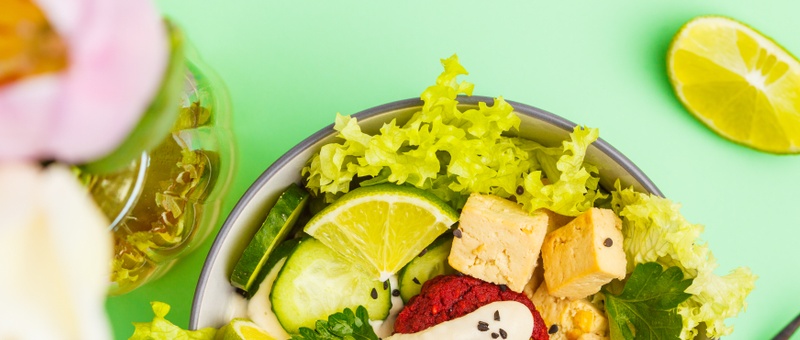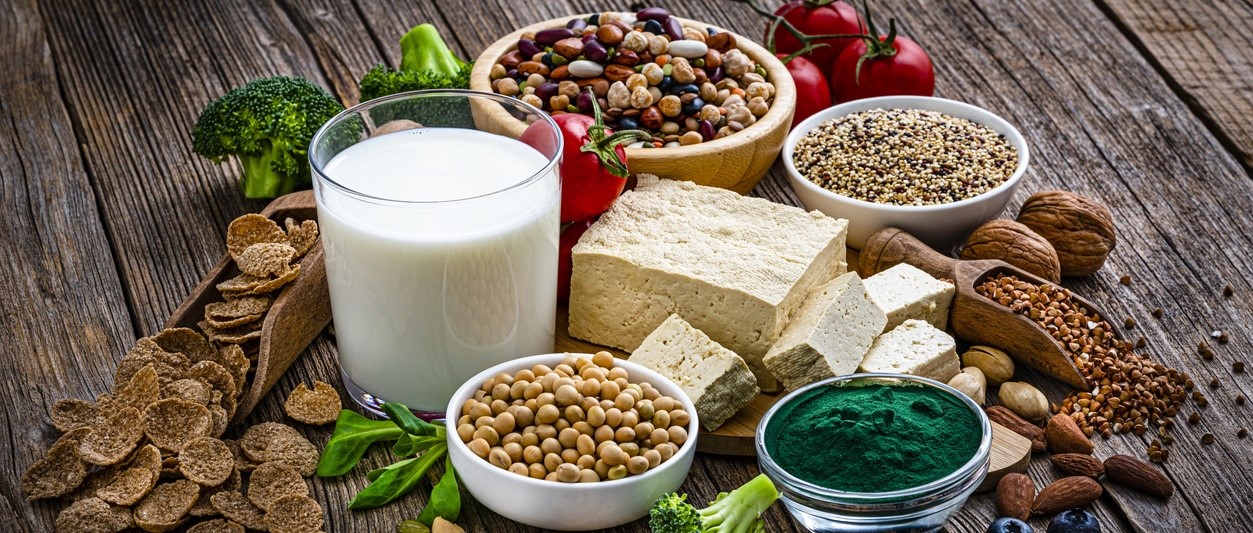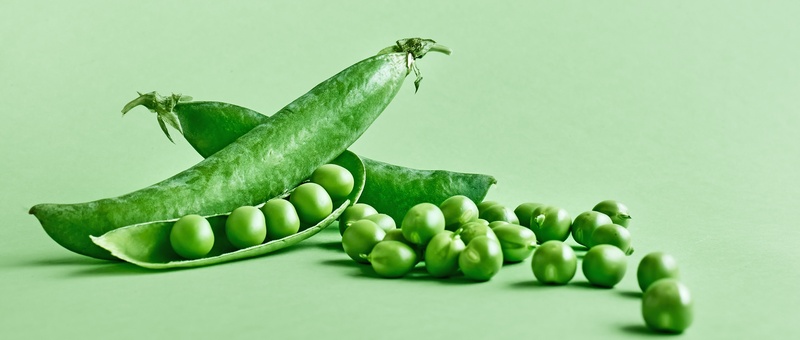
10 sources of plant-based protein for bone health
Peer reviewed by Dr Colin Tidy, MRCGPLast updated 20 Oct 2025
Meets Patient’s editorial guidelines
- DownloadDownload
- Share
- Language
- Discussion
Plant-based diets are growing in popularity. People choose this way of eating for various reasons - to boost their health, help animals, and protect the environment. But switching to a plant-based diet may mean you're missing out on vital, bone-friendly nutrients. One of these is protein.
In this article:
Video picks for Vegan and vegetarian
Embracing a plant-based diet can be good for your overall health. However, it may be that this diet lacks some nutrients important for bone health.
Some of the key nutrients for bone health include:
Calcium - crucial for hardening bones (bone mineralisation).
Vitamin D - helps your body absorb calcium.
Omega-3 fatty acids - regulate bone cell activity.
Protein - contains amino acids for building bone strength.
A lack of the above nutrients, along with other lifestyle factors, may lead to weaker bones that are more susceptible to fractures.
Continue reading below
How important is protein for bone health?
Protein - made mostly from collagen - makes up about half the space inside your bones, while minerals such as calcium make up the rest. Getting enough protein in your diet is important for building and maintaining bone strength - especially as you age.
The British Heart Foundation recommends most adults eat 0.75 grams of protein per kilogram of body weight daily. This equals around 45 grams per day for a 60 kilogram woman and 55 grams for a 73 kilogram man.
Sarah Schlichter, Registered Dietitian and Nutrition Consultant, Bucket List Tummy, Virginia, USA says: "A well-balanced diet that includes sufficient energy (calories) and protein intake - as well as adequate physical activity and strength training - is crucial to improve bone health, especially in later life."
What are the best plant-based protein sources for bone health?
Back to contentsThough plant-based foods can be great for your health, their protein content may be lower in essential amino acids than animal proteins. Amino acids are the building blocks that help your body create proteins.
Ana Reisdorf, a registered dietitian based in Franklin, Tennessee explains that protein stimulates the production of a hormone called Insulin-like Growth Factor-1 (IGF-1).
"This increases bone formation, signalling to your body to create new bone cells and improve calcium absorption," she says. "Plant-based proteins can be as good for bone health as animal-based protein if you eat a variety of them throughout the day."
Seitan
Seitan is a meat alternative made from wheat gluten, which gives it a chewy texture. It's low in fat, low in carbohydrates, and a good source of selenium and plant-based protein.
Protein content: 21 grams per serving (85 grams).
Men: 38% of daily allowance.
Women: 47% of daily allowance.
Tofu
Tofu is made from soybeans and comes in solid white blocks. It is sold in a variety of textures - ranging from soft to firm.
Protein content: 15.5 grams per block (122 grams).
Men: 28% of daily allowance.
Women: 34% of daily allowance.
Elizabeth Ward, a registered dietitian and author, based in Massachusetts, USA says that soy is one of the only plants that provides complete protein.
She explains: "It has all the essential amino acids your body needs - the same as animal protein. Calcium set tofu is particularly rich in calcium and soy isoflavones, and may benefit bone health. Its fibre content can also help reduce inflammation."
Lentils
Lentils are budget-friendly, packed with healthy nutrients and high in fibre and protein.
Protein content: 17.9 grams per cup (198 grams).
Men: 33% of daily allowance.
Women: 40% of daily allowance.
Black beans
Black beans are an excellent protein source, similar to animal products such as meat, eggs, and milk.
Protein content: 15.2 grams per cup (172 grams).
Men: 28% of daily allowance.
Women: 34% of daily allowance.
Quinoa
Quinoa contains all nine essential amino acids and its protein content is similar to cow's milk.
Protein content: 8.14 grams per cup (185 grams).
Men: 15% of daily allowance.
Women: 18% of daily allowance.
Soy Milk
Soy milk - like tofu - is made from soybeans and is a plant-based alternative to cow's milk. It's low in calories and fat, and a good source of protein, vitamins and minerals.
Protein content: 6.34 grams per cup (244 grams).
Men: 12% of daily allowance.
Women: 14% of daily allowance.
Oats
Oats are a good source of fibre - particularly beta-glucan. They also contain other healthy compounds that are good for your gut and immune system.
Protein content: 10.7 grams per cup (81 grams).
Men: 19% of daily allowance.
Women: 24% of daily allowance.
Wild Rice
Full of essential nutrients and low in fat, wild rice offers a rich source of minerals, vitamins, protein, fibre, and antioxidants.
Protein content: 6.54 grams per cup (164 grams).
Men: 12% of daily allowance.
Women: 14% of daily allowance.
Almonds
Almonds are great sources of vitamins, protein, dietary fibre and minerals.
Protein content: 30.3 grams per cup (143 grams).
Men: 55% of daily allowance.
Women: 67% of daily allowance.
Vegetables
Although all fruits and vegetables contain protein, some have more than others. The following common vegetables have rich sources of protein, each containing 3 grams per 100 grams. This makes up 5% of daily protein allowance for men, and 7% for women.
Broccoli.
Artichokes.
Brussels sprouts.
Sweetcorn.
Dr Chris Mohr, fitness and nutrition specialist, and former Sports Nutritionist for the Cincinnati Bengals and University of Massachusetts Athletic Program recommends you combine different plant-based protein sources to help you keep a balanced diet.
"A good example is combining grains with legumes, such as rice with beans," he says. "This provides all the essential amino acids needed for effective protein production. Eating a variety of plant-based protein sources throughout the day can also help you get enough protein without needing to pair foods at every meal."
Continue reading below
Are plant-based processed foods good for you?
Back to contentsAlthough there are many healthy processed plant-based options available, you should always read the nutrition label before adding them to your diet.
Mohr says that some meat-free fortified foods are designed to be high in protein and can be healthy additions to your diet. However, he warns that many plant-based processed foods can vary in protein content. Some meat substitutes - especially mock meat products such as veggie burgers - can be convenient, but aren't necessarily the healthiest choice.
Ward adds that any processed food may be higher in added fat, added sugar and sodium, and lower in other nutrients good for bone health - such as potassium and magnesium - than less processed foods.
He explains: "For example, a baked potato has no fat, added sugar, or added sodium and has many more times the potassium and magnesium of French fries, which also have additional fat and sodium."
Eating plenty of plant-based protein-rich sources can help strengthen bones on a vegan diet, reducing your chance of bone loss and fractures. By including a mix of plant-based proteins throughout the day, you can easily meet your protein needs without worrying about pairing specific foods at every meal.
Patient picks for Vegan and vegetarian

Diet and nutrition
How to eat a calcium-rich vegetarian diet
Calcium has many important functions in our bodies. It helps build bones and keeps our teeth healthy. It also makes sure our blood clots normally and regulates muscle contractions. Not enough calcium can lead to osteomalacia or osteoporosis when we're older.
by Ellie Broughton

Diet and nutrition
Plant-based proteins could help prevent high blood pressure
Eating a greater amount of minimally processed plant-based proteins - such as beans, nuts and lentils - may lower your chance of developing high blood pressure, according to new research.
by Laura Williamson
Continue reading below
Article history
The information on this page is peer reviewed by qualified clinicians.
Next review due: 20 Oct 2028
20 Oct 2025 | Latest version
1 Jul 2024 | Originally published
Authored by:
Victoria RawPeer reviewed by
Dr Colin Tidy, MRCGP

Ask, share, connect.
Browse discussions, ask questions, and share experiences across hundreds of health topics.

Feeling unwell?
Assess your symptoms online for free
Sign up to the Patient newsletter
Your weekly dose of clear, trustworthy health advice - written to help you feel informed, confident and in control.
By subscribing you accept our Privacy Policy. You can unsubscribe at any time. We never sell your data.